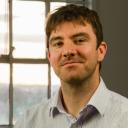Balancing flexibility and scale in a synthetic biology foundry

IEEE Computer Society and GBC/ACM
7:00 PM, Thursday, 14 April 2016
Broad Institute Auditorium (corner of Vassar & Main Sts, Cambridge)
Balancing flexibility and scale in a synthetic biology foundry
Barry Canton, Ginkgo Bioworks, Inc.
There is a growing demand to source a wide range of chemical products (for example, plant-derived extracts) from engineered microbes. While recent advances in synthetic biology and metabolic engineering make this work technically feasible, commercial success is hindered by the cost to develop the microbes. Development has been costly because the complexity and diversity of biology favored a labor-intensive, small-batch approach to engineering. Ginkgo has built a foundry that allows many microbial engineering projects to use shared processes in a high-throughput, largely-automated fashion, that unlocks substantial economies of scale. In this talk, I will outline the approach, custom software, and hardware that we use to allow flexibility and scale to co-exist where previously one came at the expense of the other. I will illustrate this with examples from each stage of the engineering process across representative projects.
barrycanton.jpg
Barry Canton co-founded synthetic biology company Ginkgo Bioworks in 2008 and has helped build the company to 55 people and raised more than $50M in investment over the last year. At Ginkgo, Barry is responsible for the development of the foundry, a centralized facility for organism engineering. In this role he oversees the development of hardware, software, and wetware technologies. Earlier, he led the development of new methods for assembling DNA from standard parts. He holds a PhD in Biological Engineering from MIT, where his thesis focused on refinement of standard biological parts and the interactions between a host cell and an engineered genetic circuit. At MIT, he was involved with the Synthetic Biology Working Group that was instrumental in catalyzing the new field. He also holds an MEngSc in Mechanical Engineering from University College Dublin.
This joint meeting of the Boston Chapter of the IEEE Computer Society and the GBC/ACM will be held in the main auditorium on the 1st floor of the Broad Institute, corner of Main and Vassar Streets in Cambridge.
